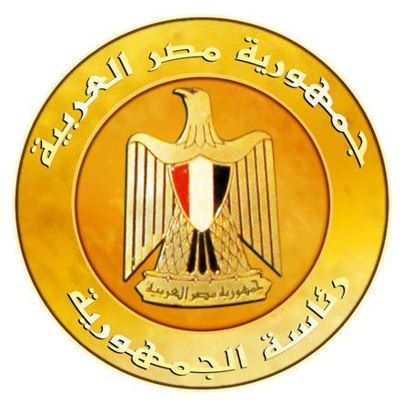Latest NEWS
- Aswat Masriya, the last word
- Roundup of Egypt's press headlines on March 15, 2017
- Roundup of Egypt's press headlines on March 14, 2017
- Former Egyptian President Hosni Mubarak to be released: lawyer
- Roundup of Egypt's press headlines on March 13, 2017
- Egypt's capital set to grow by half a million in 2017
- Egypt's wheat reserves to double with start of harvest -supply min
- Roundup of Egypt's press headlines on March 12, 2017
Egypt presidency says diplomacy failed to end crisis

By Michael Georgy and Maggie Fick
CAIRO, Aug 7 (Reuters) - Egypt's presidency said on Wednesday that diplomatic efforts to end the country's political turmoil had failed and warned that the Muslim Brotherhood of ousted President Mohamed Mursi would be held responsible for the consequences.
In a statement, interim President Adly Mansour's office said the period of international efforts that began more than 10 days ago had "ended today".
The state held the Muslim Brotherhood completely responsible for "the failure of these efforts and the later events and developments that might result from this failure related to breaches of the law and endangering civil peace", it added.
The breakdown raised the prospect of heightened instability and bloodshed in the largest Arab state which has a peace treaty with Israel and controls the strategically vital Suez Canal.
Thousands of supporters of Mursi, who was toppled by the army on July 3, have been staging protest sit-ins in two areas of Cairo for the last five weeks to demand his reinstatement.
Egyptian authorities had warned they were losing patience with the sit-ins. The presidency's declaration suggests security forces could soon use force to break up the gatherings, raising the prospect of more bloodshed.
Almost 300 people have been killed in political violence since the overthrow, including 80 shot dead by security forces in a single incident on July 27.
Envoys from the United States, European Union, Qatar and the United Arab Emirates have been trying to defuse the crisis and prevent further bloodshed.
The presidency statement said the government had allowed the envoys "to visit and discuss" the situation, including with jailed Muslim Brotherhood leaders.
The aim was to urge the Brotherhood to "respect the will of the people" who had protested to demand an end to Mursi's rule.
"These efforts did not achieve the hoped-for success, despite the complete support the Egyptian government offered," said the presidency.
There was no immediate reaction from the pro-Mursi camp.
Mohamed Ali Bishr, a senior Brotherhood leader who has represented the group in the recent talks with diplomats, told Reuters he needed time to confer with other Brotherhood members before responding to the presidency's statement.
U.S. ENVOY LEAVES
The senior U.S. diplomat involved in the mediation effort left Egypt on Wednesday, Cairo airport officials said shortly after the government declared diplomatic efforts had failed.
U.S. Deputy Secretary of State William Burns had held talks with both the government and members of the Muslim Brotherhood during the mediation effort, together with European Union envoy Bernardino Leon and the Qatari and UAE foreign ministers.
In a first reaction, a spokesman for EU foreign policy chief Catherine Ashton said the Europeans would "continue to do all we can to try and encourage people to get this inclusive dialogue going, that is so important to see a return to the democratic transition in Egypt".
The Dutch foreign minister was the latest foreign emissary to visit Cairo for talks with his Egyptian counterpart, the prime minister and the president and other officials on Wednesday but his mission appeared to have come too late.
On Tuesday, two senior U.S. senators visiting Cairo, Lindsey Graham and John McCain, called on the military to release political prisoners and start a national dialogue to return the country to democratic rule.
"I didn't know it was this bad. These folks are just days or weeks away from all-out bloodshed," Graham told the CBS network.
Fears that Mursi was trying to establish an Islamist autocracy, coupled with a failure to ease economic hardships afflicting most of Egypt's 84 million people, led to mass street protests, triggering the army intervention.
In the latest violence, gunmen in Sinai Peninsula near the border with Israel killed a politician on Wednesday who was a member of parliament during the era of autocrat Hosni Mubarak, security sources said.
Attackers in a car fired four bullets at Abdel Hamid Silmi as he left a mosque, the sources said, adding that he had been a member of Mubarak's now outlawed National Democratic Party.
Islamist militants, mostly based in North Sinai, have escalated attacks on security forces and other targets since Mursi was deposed last month.
The Muslim Brotherhood says it has no connection with the militants, who have struck almost daily, killing about 40 people, according to medical officials. Many of those killed were members of the security forces. (Additional reporting by Adrian Croft in Brussels; Writing by Michael Georgy; Editing by Paul Taylor)










